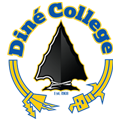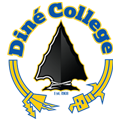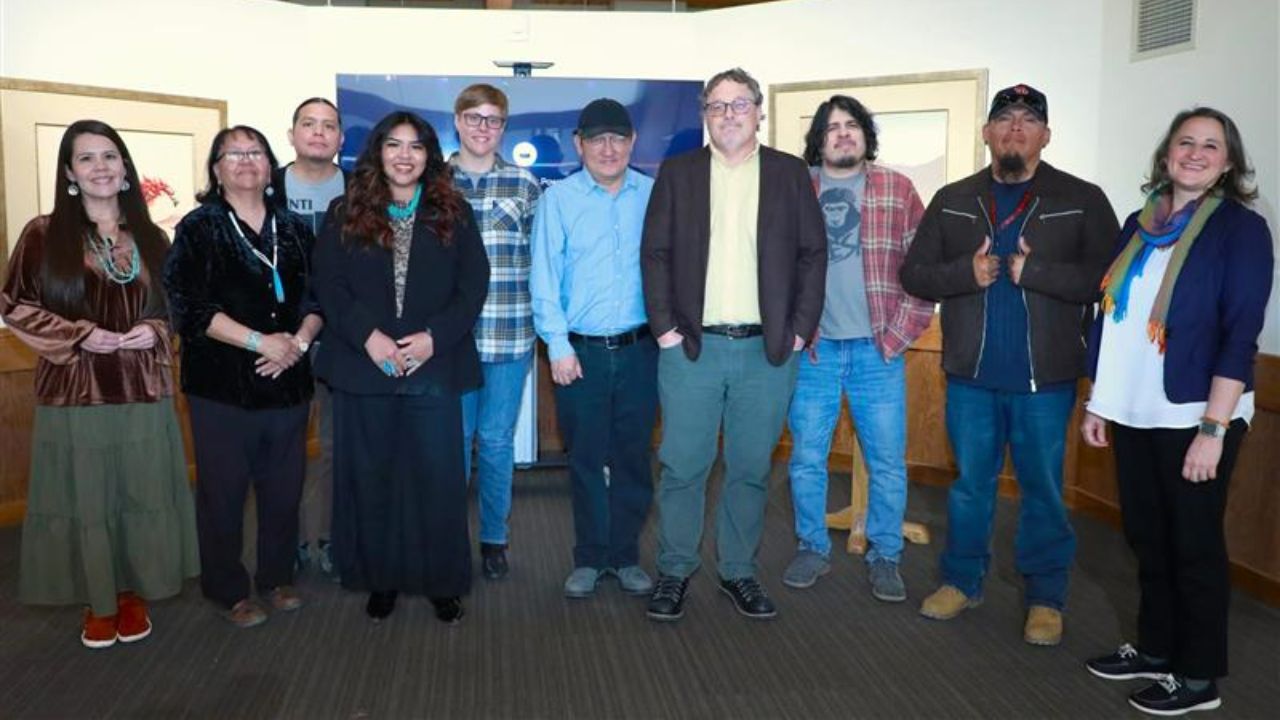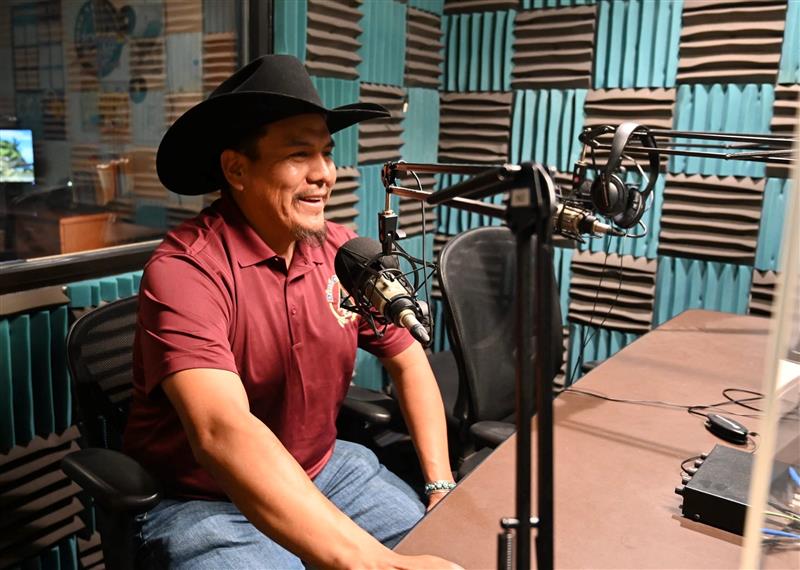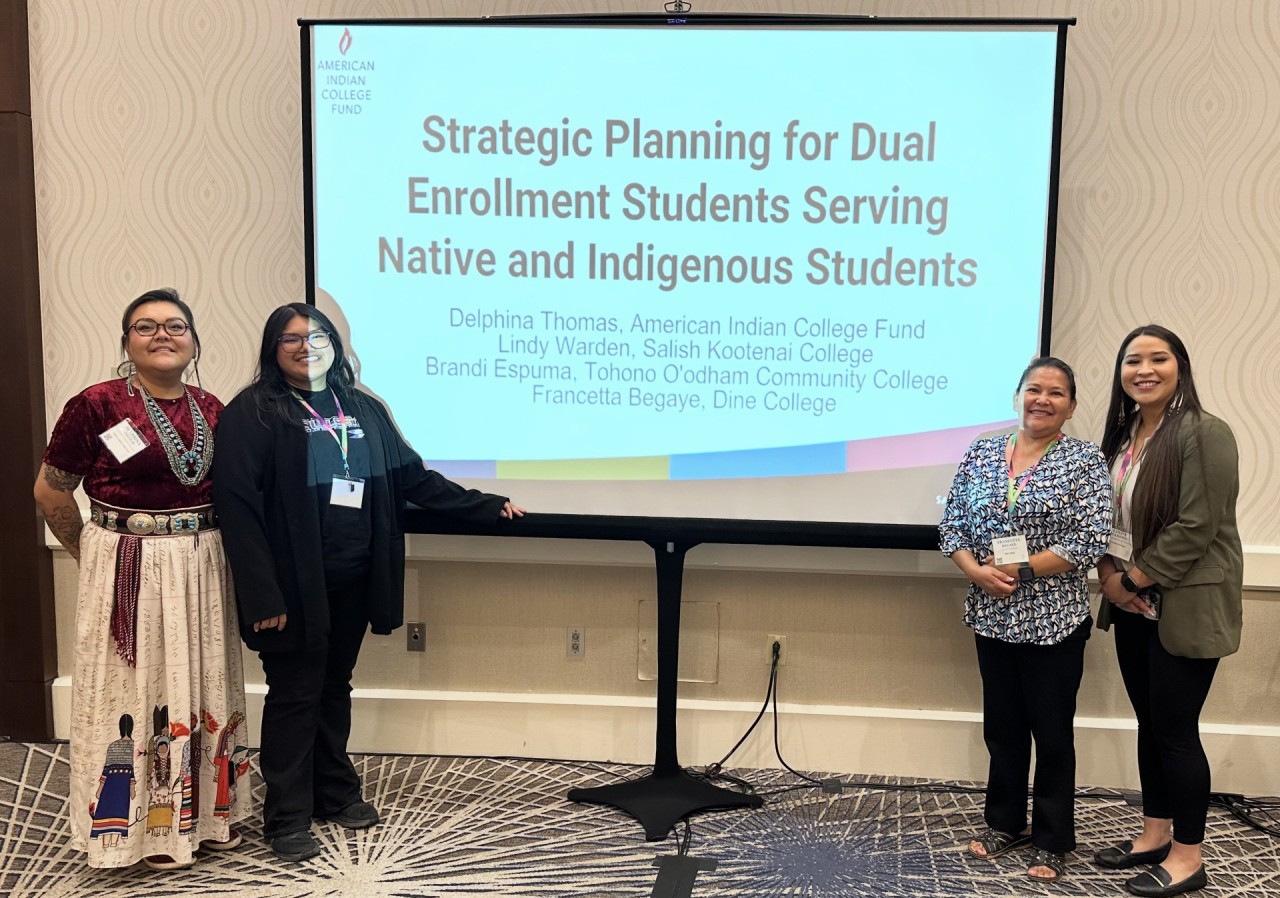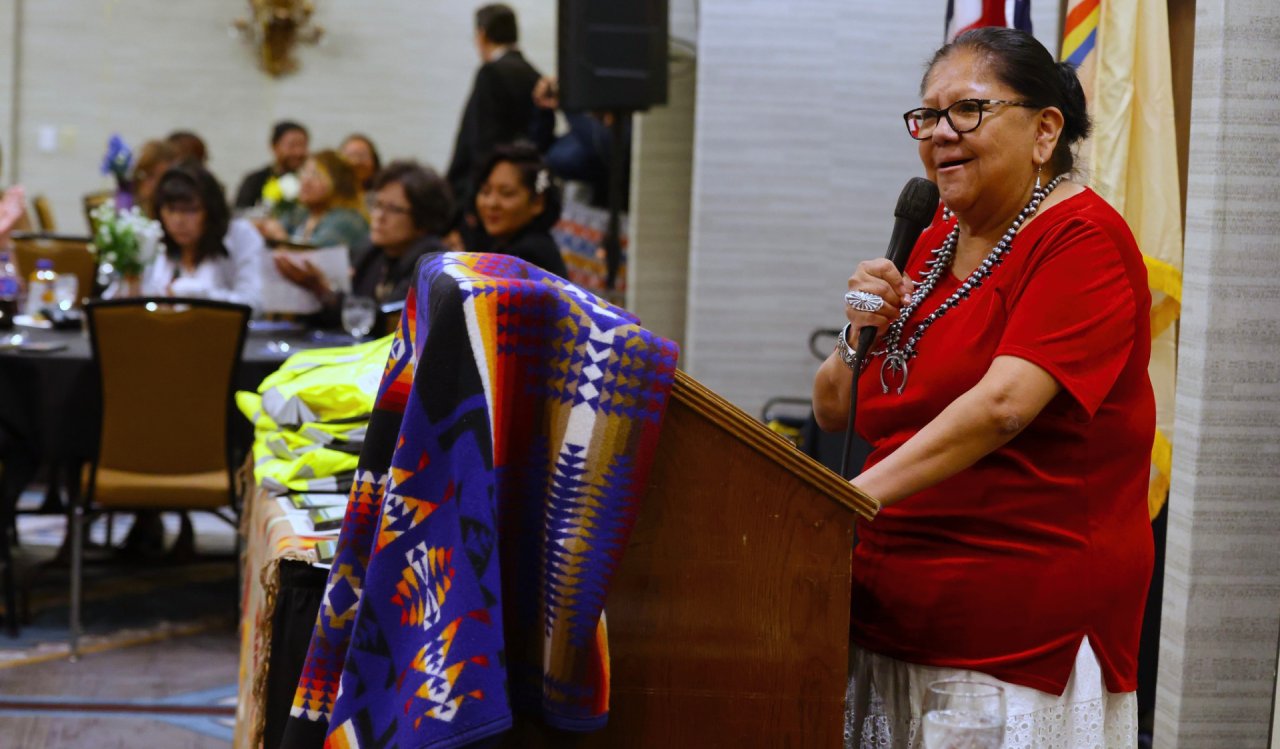PHOTO (L-R: Jessica Holiday, Velma Hale, Orlando White, Jessica Begay, Christie Toth, Haesong Kwon, Matthew Evertson, Jesse Maloney, Lambert Martin, & Brenda Lanphear)
March 26, 2025
Diné College Hosts “Still Sacred” Event on Writing, Culture, and Language
TSAILE, Ariz. Diné College hosted “Still Sacred: First-Year Writing at the Tribal College,” a two-day event on March 20-21, 2025, dedicated to exploring writing, culture, and language within Indigenous education. Held in the RC Gorman Room at the Kinyaa’áanii Charlie Benally Library, the event gathered scholars in composition, rhetoric, and literature to discuss challenges and opportunities in creating a first-year writing curriculum rooted in Diné identity and cultural preservation.
The conference featured morning and afternoon sessions, with presenters discussing approaches to decolonizing writing instruction and integrating Navajo ways of thinking and storytelling into academic contexts. Attendees explored teaching methods that honor the Diné language and the role of land in shaping education.
Jessica Nichole Begay, a Diné graduate student in Writing and Rhetoric Studies at the University of Utah, shared her perspective on the power of writing to tell her story and preserve her ancestors’ voices.
Jessica Holiday, a first-year Ph.D. student in the same program, addressed public lands, tribal sovereignty, and the rhetoric of Bears Ears National Monument. Drawing from her experiences as a creative writer and educator, she emphasized the importance of linking land and language in Indigenous education.
Matthew Evertson, a professor of literature from Western Colorado University, presented his research on ecological themes in Western American literature and the environmental humanities. Reflecting on the intersection of culture and place, Evertson highlighted how these themes offer meaningful ways to approach writing instruction.
Christie Toth, an associate professor at the University of Utah, brought her experience working with Diné College from 2012 to 2015 to discuss equitable approaches to teaching writing in access-oriented institutions. She noted the importance of faculty collaboration and student input in creating inclusive, culturally relevant curricula.
Other presenters included Karla Britton, Sheldon Harvey, Debra Robinson, and Orlando White from Diné College. In his presentation of the Diné One-Word Poem, White cited Tohono O’odham poet Ofelia Zepeda, stating, “People are not powerful; their language is.” This sentiment resonated with discussions about the power of storytelling and the role of language in cultural resilience.
“Still Sacred” allowed students, faculty, and scholars to engage deeply with methods of improving writing instruction without compromising cultural identity. The event emphasized Diné College’s mission to provide higher education rooted in Navajo values while addressing the needs of Native students.
